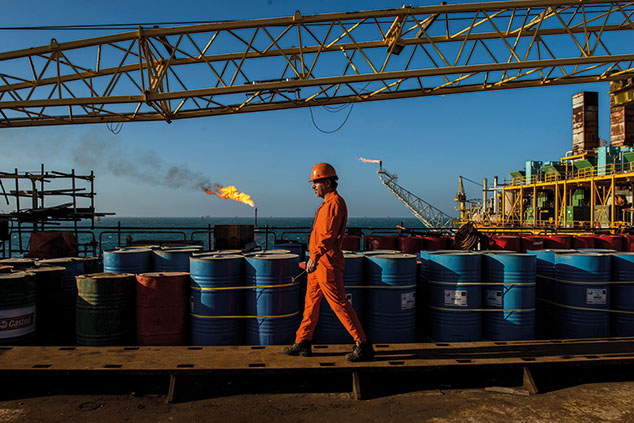
An unexpected glut
It mostly boils down to Iran. US sanctions were expected to shut down Iranian oil exports, which saw global producers ramp up their supplies to fill the gap. Commerzbank estimates oil cartel Opec has boosted production by more than a million barrels a day since the summer. Russia has raised production by 400,000 barrels a day, and the US by 300,000, according to Finanz & Wirtschaft. However the US unexpectedly granted waivers to allow Iran’s largest oil buyers – including China, India and Japan – to continue importing from the Islamic Republic. “So, there’s now a glut of crude sloshing around the world,” says John Authers on Bloomberg.
What does this mean for the global economy? Sometimes a falling oil price is seen as a sign of an impending slowdown, but in this case, as it is due to oversupply rather than falling demand, it is unlikely to be “a precursor of something more pernicious to come, like a recession,” says Mark DeCambre on Marketwatch. Instead, in the US, where petrol prices move particularly quickly in response to changes in the oil price (owing to low gasoline taxes), lower oil prices could give the economy a boost by leaving consumers with more disposable income. In the eurozone, it could reduce headline inflation, which might make the European Central Bank less inclined to raise interest rates next year.
How long might the oversupply last? Opec has intimated it might cut production, which could put a floor under prices for now. Yet US energy firms are still deploying increasing numbers of oil rigs to boost production – the rig count recently reached a three-year high. With US crude output set to eclipse 12 million barrels a day next year, says Stephen Innes of Oanda, “Opec is in for a shale shocker.”
Peak demand, not peak oil
As for the longer run, when oil prices spiked a decade ago, the notion of “peak oil” – the idea that global oil production would peak while demand would keep rising, sending prices ever higher – became popular. “Now, the notion is of peak demand,” says Authers. Developed economies, with an emphasis on services, are not as dependent on oil as manufacturing-oriented economies. So “demand may, indeed, have peaked”. That day may not arrive soon – but oil does seem unlikely to return to its financial-crisis era highs of above $100 a barrel for quite some time, if ever.